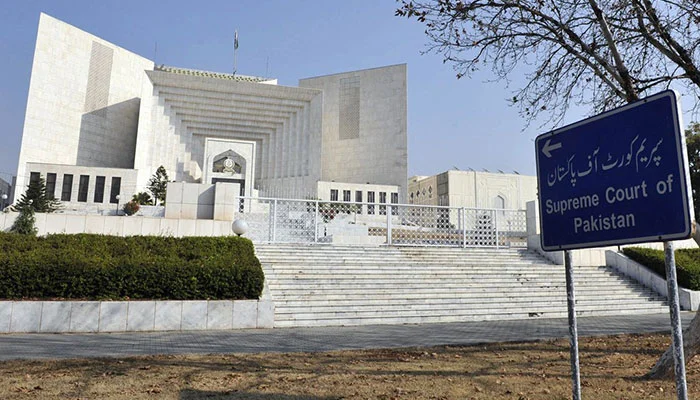By: Asem Mustafa Awan
The Supreme Court of Pakistan has issued a written order advising political parties to seek resolution through negotiations and consensus regarding the holding of elections in Punjab. The court, while adjourning the hearing of the election case indefinitely, expressed hope that the political parties would come to an agreement on a suitable election date. This marks the second time that the Supreme Court has recommended initiating dialogue, with the first attempt resulting in talks between the Pakistan Democratic Movement (PDM) government and the Pakistan Tehreek-e-Insaf (PTI) party. However, the PDM government advocated for elections in October, while PTI insisted on May, resulting in a deadlock. Recent events have led to a shift in PTI’s stance, with party leader Imran Khan suggesting the need for renegotiation. Nevertheless, PDM declined to engage in dialogue this time.
Reflecting on historical instances, during World War II, stubborn leadership resorted to peace negotiations after immense loss of lives and resources. Following the war, Europe established the United Nations to facilitate peaceful diplomatic resolutions to international conflicts. However, failure to engage in dialogue led to the tragic “Fall of Dhaka” during the Bangladesh Liberation War. The significance of negotiation lies in the fact that it should not favor one party at the expense of another’s status. Currently, Pakistan faces a crisis due to the dissolution of the assemblies in Punjab and Khyber Pakhtunkhwa, necessitating fresh elections. The constitution allows for a 90-day caretaker setup and subsequent elections, but PDM’s actions have raised concerns about the constitution’s legitimacy.
Unfortunately, the PDM’s governance has led to a deteriorating economy, uncontrollable inflation, and questioned good governance, creating overall instability and generating internal and external conflicts. The magnitude of the situation is alarming, as the delay in elections across the country threatens the democratic system itself. The Supreme Court has twice provided election dates for Punjab and advised the warring political forces to negotiate, but instead of following the directives, the ruling coalition launched a campaign against the court. The PDM, believing that the PTI’s influence is waning after the incident on May 9, operates under an illusion, as political dynamics can be unpredictable. International surveys and polls offer a different perspective, and in this era, information is readily accessible.
Looking back at history, political decisions have played pivotal roles in shaping nations, as seen with the crumbling of the National Alliance following Bhutto’s conviction. It is crucial for all parties involved to come together and navigate Pakistan out of the deepening quagmire it finds itself in. Time is of the essence, and resolving the current impasse through dialogue is essential for the country’s progress.
